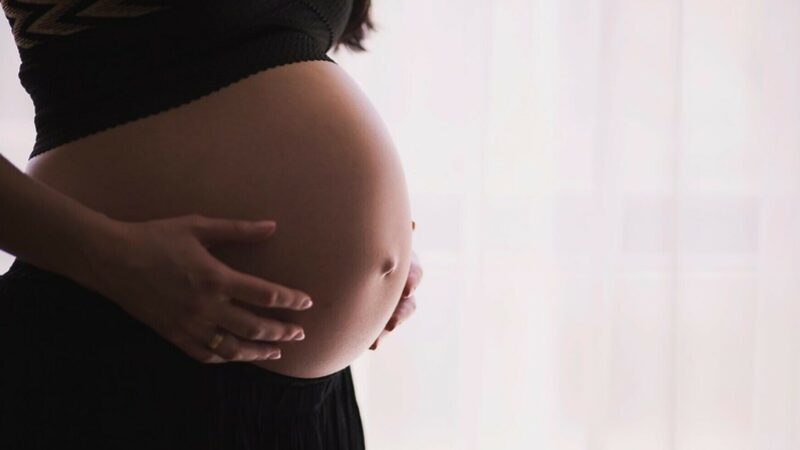Alabama, Gulf States receive F rating in March of Dimes’ 2021 maternal health report
Alabama ranked toward the bottom in the nation for maternal and infant health outcomes in an annual report put out by March of Dimes, an organization that promotes maternal and infant health across the United States through research, education and advocacy.
In the advocacy group’s report card released Monday, it gave Alabama an F rating, along with Louisiana, Mississippi, Arkansas, South Carolina and West Virginia.
The state also had one of the highest infant mortality rates and preterm birth rates, and Birmingham was among a list of 100 cities with the greatest number of births to receive an F grade.
The criteria through which the grades are determined include, but are not limited to, an examination of states’ preterm birth and infant death rates, social vulnerability, low-risk cesarean births, state efforts on Medicaid expansion and extension, and policies related to doula and midwives.
Infant mortality
March of Dimes found Alabama’s infant mortality rate to be 7.9 infant deaths per 1,000 live births, which is significantly higher than the national infant mortality rate of 5.6 deaths per 1,000 live births.
Alabama isn’t the only Gulf state with an infant mortality rate well above the national average. Louisiana’s infant mortality rate is slightly higher, at 8.1 deaths per 1,000 live births. Mississippi, however, holds the highest infant mortality rate in the country, at 9.1 deaths per 1,000 births.
Preterm birth rates
In addition to its holistic rating, the organization assigns letter grades to denote a state’s preterm birth rate. Considering its low overall rating, Alabama unsurprisingly performed poorly in this subcategory.
March of Dimes considers any preterm birth rate at or over 11.5% to constitute an F grade. Alabama surpassed the group’s failing benchmark with a 12.9% preterm birth rate.
There are significant ethnic and racial disparities when it comes to the state’s preterm birth rates. At 16.1%, Black Alabama women have a preterm birth rate that is 52% higher than that among all other women, according to March of Dimes. Asian/Pacific Islander and Hispanic Alabama women hold the state’s lowest preterm birth rates – 9.1% and 9.4%, respectively. White Alabama women have a preterm birth of 10.8%.
The data indicate that Mobile County has the highest preterm birth rate at 16%, whereas Baldwin County holds the lowest at 10%. One positive note from the report indicates that the preterm birth rate improved compared to last year’s report in Baldwin, Jefferson, Madison and Montgomery counties.
When compared to other states in the Gulf South, Alabama’s preterm birth rate fairs either similarly or slightly better. Louisiana’s preterm birth rate is also 12.9%. At 14.2%, Mississippi’s preterm birth rate is the highest in the nation.
Social vulnerability index (SVI)
March of Dimes uses a Social Vulnerability Index (SVI) — a number between 0 and 1 — to determine where a pregnant person is more likely to experience poor maternal or infant health outcomes. The factors that determine a given county’s SVI are grouped into four categories: “socioeconomic status; household composition and disability; minority status and language; and housing type and transportation.”
Of Alabama’s 67 counties, 48 of them were placed in the highest possible SVI category (0.6 – 1.0), indicating that poor health outcomes are highly likely for most pregnant Alabama women. Baldwin and Shelby were the only counties assigned the lowest possible SVI category (0.0 – 0.29).
Similar to Alabama, a vast majority of counties in Mississippi and Louisiana fall in the highest SVI category.
To view the full report and read more about their campaign, click here.
This story was produced by the Gulf States Newsroom, a collaboration between Mississippi Public Broadcasting, WBHM in Birmingham, Alabama, WWNO in New Orleans and NPR.
Attitudes among Alabama lawmakers softening on Medicaid expansion
Alabama is one of ten states which has not expanded Medicaid. Republican leaders have pushed back against the idea for years.
Birmingham is 3rd worst in the Southeast for ozone pollution, new report says
The American Lung Association's "State of the Air" report shows some metro areas in the Gulf States continue to have poor air quality.
Why haven’t Kansas and Alabama — among other holdouts — expanded access to Medicaid?
Only 10 states have not joined the federal program that expands Medicaid to people who are still in the "coverage gap" for health care
Once praised, settlement to help sickened BP oil spill workers leaves most with nearly nothing
Thousands of ordinary people who helped clean up after the 2010 BP oil spill in the Gulf of Mexico say they got sick. A court settlement was supposed to help compensate them, but it hasn’t turned out as expected.
Q&A: How harm reduction can help mitigate the opioid crisis
Maia Szalavitz discusses harm reduction's effectiveness against drug addiction, how punitive policies can hurt people who need pain medication and more.
The Gulf States Newsroom is hiring a Community Engagement Producer
The Gulf States Newsroom is seeking a curious, creative and collaborative professional to work with our regional team to build up engaged journalism efforts.








